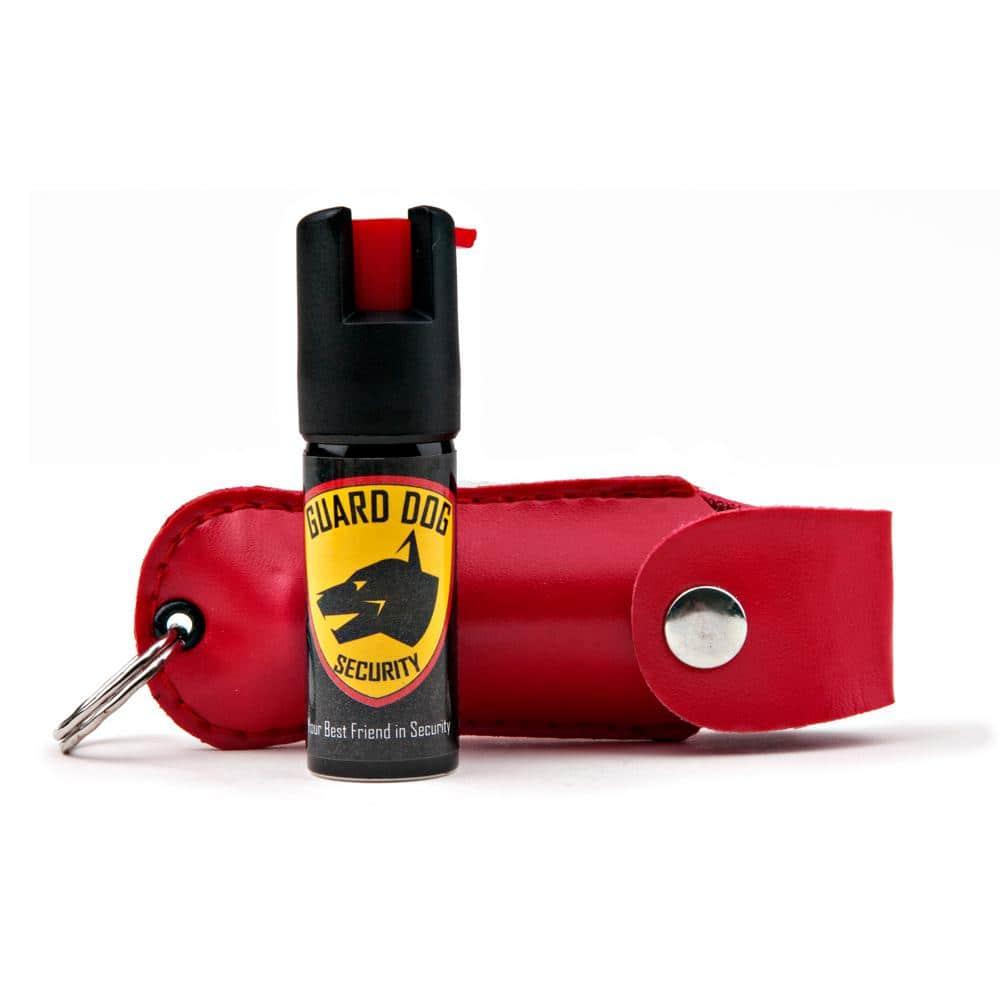Table of Contents
- When Pepper Spray Could Pose More Risk Than Protection
- Medical Conditions That Make Pepper Spray Unsafe
- Situations Where Pepper Spray May Worsen the Outcome
- Expert Tips for Safe Self-Defense Alternatives
- To Conclude
When Pepper Spray Could Pose More Risk Than Protection
While pepper spray is often hailed as a reliable self-defense tool, there are situations where it might actually backfire, increasing danger rather than preventing it. For instance, in confined or enclosed spaces, deploying pepper spray can cause you to inhale the irritant along with your assailant, leading to temporary blindness, coughing, or difficulty breathing. Additionally, unpredictable wind conditions in outdoor environments can cause the spray to blow back into your face, rendering it useless and putting you at greater risk.
Medical professionals caution that individuals with respiratory conditions like asthma or allergies should avoid carrying pepper spray, as exposure-even accidental-might trigger severe reactions requiring immediate medical attention. Furthermore, if you’re in a scenario where you might encounter children, elderly, or bystanders in close proximity, the collateral effects of pepper spray become a serious concern. Before deciding to carry this tool, weigh potential risks carefully and consider alternative safety measures tailored to your environment and health status.
- Confined spaces: Increased chance of self-exposure
- Windy outdoor settings: Risk of spray blowing backward
- Respiratory illnesses: Possible severe allergic reactions
- Presence of vulnerable individuals: Unintended harm to others
Medical Conditions That Make Pepper Spray Unsafe
Individuals with certain health issues should exercise caution before carrying or using pepper spray due to the potential for severe adverse reactions. Those with respiratory conditions such as asthma, chronic obstructive pulmonary disease (COPD), or severe allergies may experience aggravated breathing difficulties upon exposure. The chemical irritants in pepper spray can trigger intense inflammation and bronchospasm, sometimes leading to life-threatening situations. Additionally, people with cardiovascular problems like heart arrhythmias or hypertension should consider alternative personal protection methods, as the stress from exposure can spike heart rates and blood pressure dangerously.
Beyond respiratory and heart-related concerns, certain neurological and skin conditions also heighten risks. For example, individuals diagnosed with epilepsy may face increased seizure triggers from the stress and physical reactions induced by pepper spray. Those with hypersensitive or compromised skin-such as sufferers of eczema, psoriasis, or severe dermatitis-are especially vulnerable to prolonged irritation or allergic reactions post-exposure. Always consult with a healthcare professional before deciding to carry pepper spray if you have any of these conditions, and consider alternative safety devices tailored to your health needs.
Situations Where Pepper Spray May Worsen the Outcome
While pepper spray can be a powerful tool for self-defense, certain environments and situations may amplify its risks rather than improve your safety. For instance, using it in confined, poorly ventilated spaces-such as small rooms, vehicles, or crowded public transport-can cause uncontrollable exposure to innocent bystanders, including yourself. The aerosolized irritant lingers in the air, affecting eyes and respiratory systems indiscriminately, which could escalate chaos and panic instead of neutralizing the threat.
Additionally, deploying pepper spray against individuals with respiratory issues like asthma or chronic lung disease can lead to severe, even life-threatening complications. Similarly, if your attacker appears heavily intoxicated or under the influence of substances, the effectiveness might be reduced, and their reaction unpredictable, sometimes provoking aggravated aggression. Consider these factors carefully before reaching for pepper spray, as misuse could ultimately intensify harm.
- Enclosed or crowded environments
- Presence of children, elderly, or vulnerable individuals nearby
- When the assailant has respiratory illnesses
- Use during adverse weather conditions like strong wind
- Facing someone under drug or alcohol influence
Expert Tips for Safe Self-Defense Alternatives
When seeking alternatives to pepper spray for personal protection, it’s crucial to prioritize strategies that emphasize awareness and calm assertiveness. Experts recommend focusing on situational awareness, such as avoiding risky environments after dark and trusting your instincts when something feels off. Simple adjustments like walking confidently, staying in well-lit areas, and keeping communication devices accessible can reduce vulnerability dramatically.
Additionally, consider incorporating non-violent self-defense tools that require minimal training and pose less risk of misuse. Items like personal alarms, which emit loud noise to deter attackers and alert bystanders, or tactical flashlights that temporarily blind an aggressor, offer practical alternatives. Here are some to explore:
- Personal safety alarms: Easy to carry and use, providing immediate attention.
- Tactical flashlights: Compact, effective for both illumination and deterrence.
- Self-defense training classes: Empower you with skills and confidence without relying on chemical sprays.
- Everyday carry tools: Items like sturdy pens designed for self-defense can serve a dual purpose.
To Conclude
In conclusion, while pepper spray can be a valuable tool for personal safety, it’s essential to understand when its use is inappropriate or potentially harmful. Following your doctor’s advice and being mindful of specific health conditions, legal restrictions, and situational factors can help ensure that you protect yourself without unintended consequences. Always prioritize awareness, prevention, and informed decision-making alongside any self-defense measures you choose to carry. Stay safe and stay informed.Check Our Other Blogs
- StunGun – Your Trusted Source for Stun Guns, Laws, and Self-Defense Tips
- PepperSprayLaws – Your Trusted Resource for Pepper Spray Information
- StunGunLaws – Your Trusted Guide to Stun Gun Legality and Safety




